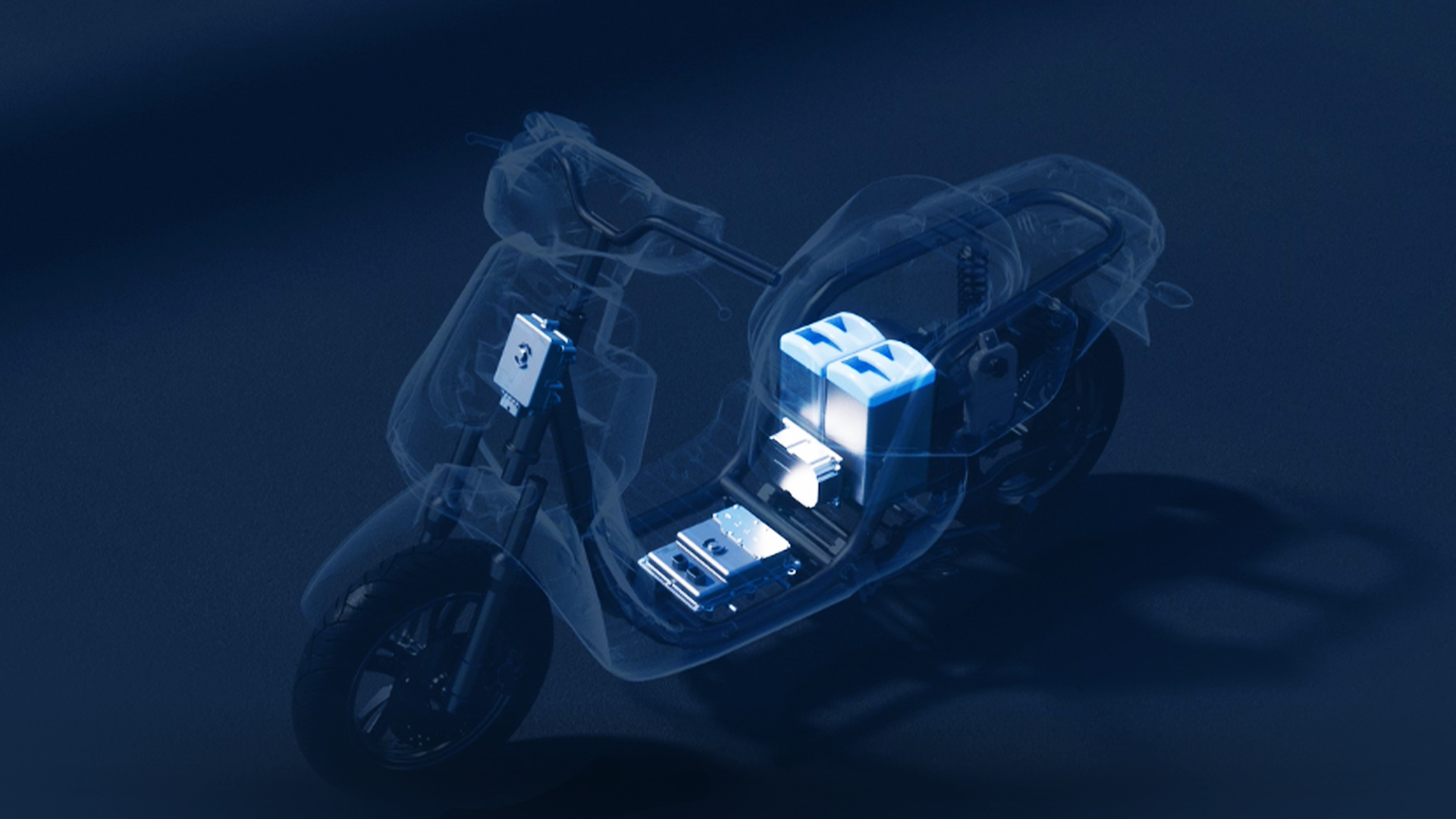
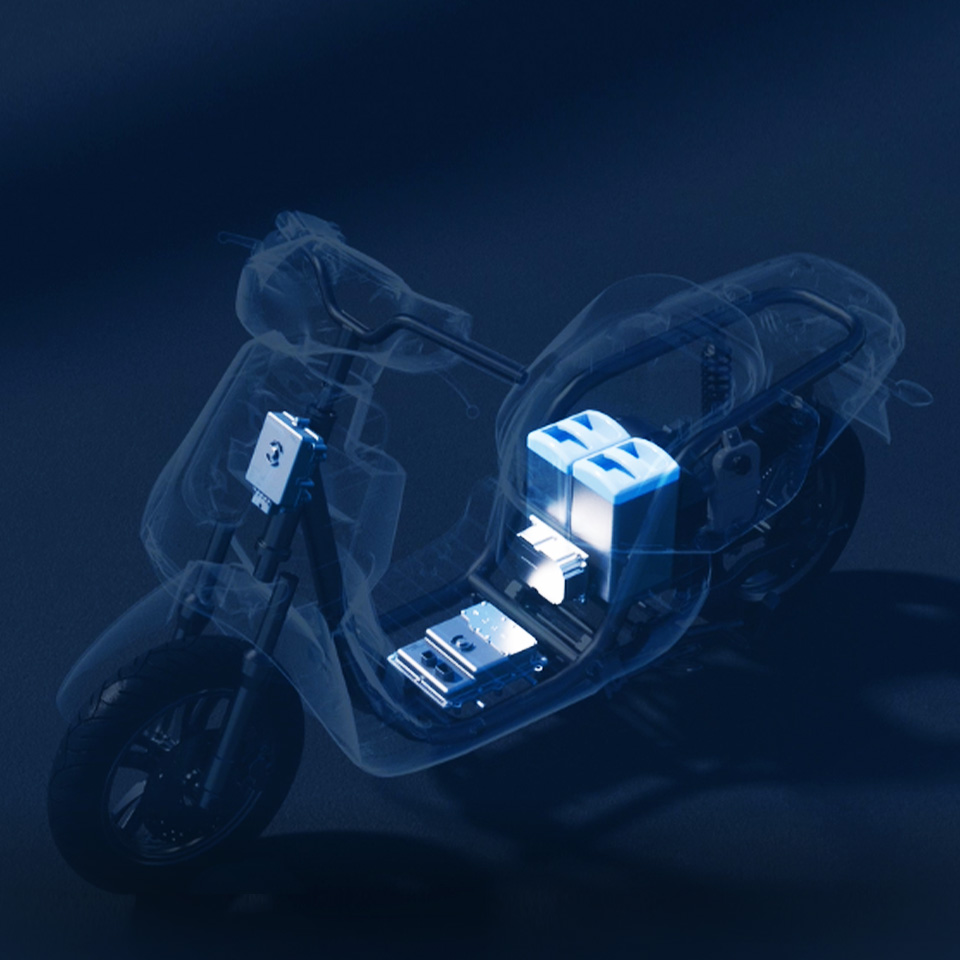


While industries are rapidly changing due to the 4th industrial revolution, the place that is changing the most is definitely the mobility industry. Unprecedented changes are happening at the same time - the shift to green mobility, ride-sharing services, autonomous driving, and more. The emergence of a new means of transportation called micro-mobility, which is rapidly becoming part of our daily lives, is also an example. This is a non-motorized or electric powered-based means of transport for one or two people, including electric scooters and electric bicycles, and this is mainly used for short-to-medium-distance travels.
It is noteworthy that micro-mobility is emerging as the core of future transportation - because of metropolitanization, single-person households, the demand for personal mobility for safer mobility, the delivery industry that has exploded due to COVID-19, pollution-free vehicle-only zones, etc. Hyundai Motor Group also started targeting the eco-friendly micro-mobility market with Hyundai Kefico.
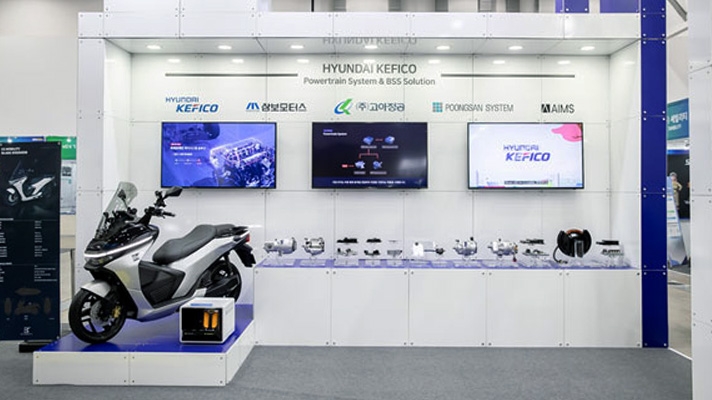
Hyundai Kefico, which has been developing and supplying internal combustion engine-related parts such as engine control systems and transmissions, has recently joined the electric two-wheeled vehicle market as well as the eco-friendly four-wheeled mobility market. MobilGo, an electric two-wheeled vehicle drive system, was developed in September of last year based on the know-how of the powertrain control system that has been developed for about 30 years since 1987.
With the increase in delivery service and leisure activities, Hyundai Kefico predicted an increase in demand for electric two-wheeled vehicles to replace 125cc engines, and first developed a 6.8kW-electric two-wheeled vehicle drive system. In fact, Hyundai Kefico has developed a control system for two-wheeled vehicles since 2006, and has since developed a control system for a four-wheeled electric vehicle (BEV), a hybrid vehicle (HEV), and a hydrogen electric vehicle (FCEV), developing eco-friendly vehicle-related technologies; And this was how MobileGo was born.
Hyundai Kefico's electric two-wheel drive system development started in 2017, started advanced research the following year, and completed a prototype in 2019. Afterward, through vehicle testing and evaluation, the design concept was advanced and mass production began. During the 38-month journey, 717 items were verified and tested, and 546 errors and defects were corrected to manufacture the product.
According to a study by the Lufthansa Innovation Hub (LIH), the future innovation laboratory of German airline Lufthansa, among ground transportation, the average amount of carbon dioxide emitted by a two-wheeled internal combustion engine (gasoline) means is 145 gram per 1 kilometer, which is the second-highest after an internal combustion engine vehicle (208 g/km). Electrification of two-wheeled vehicles is a must even in order to build a sustainable mobility environment. This is also the reason why Hyundai Kefico jumped into the electric two-wheeled vehicle market.
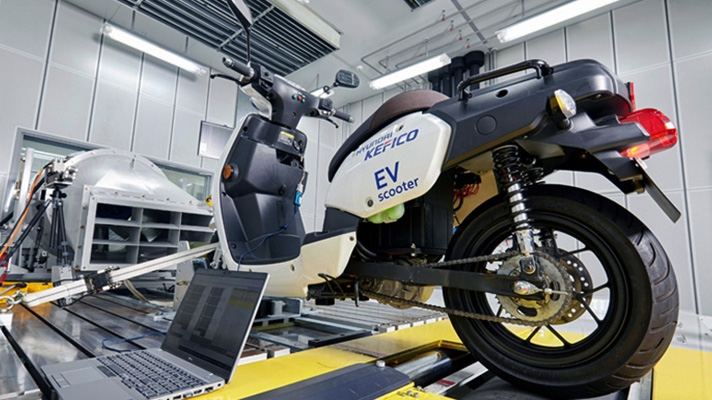
MobilGo is mainly composed of three parts: a powertrain package, a cooling package, and a vehicle control package. And it uses a total control solution in which all seven components and software are integrated. The Mobilgo system supports the speed, output, and mileage comparable to the current 125~150cc internal combustion engine two-wheelers through Hyundai Kefico's unique technology. The top speed is over 90 km/h, and the driving range on a single charge exceeds 150 km. In addition, it improved driving satisfaction by realizing superior acceleration and maintaining the top speed compared to the internal combustion engine.
The key components that provide this performance are the 6.8kW driving motor and the Motor Control Unit (MCU), the powertrain package. The MCU generates torque by sending an electrical signal to the motor, and the power of the motor is transmitted to the wheels through the sprocket and chain (belt). The MCU receives commands from the Vehicle Control Unit (VCU) through CAN (Controller Area Network) communication, to optimally control the motor through the internal inverter and adjust the temperatures of the motor and MCU using the Electric Water Pump (EWP). For reference, CAN communication is a standard device designed for microcontrollers and others to communicate with each other in a vehicle without a host computer.
When designing drive motors and MCUs, Hyundai Kefico puts the most emphasis on heat dissipation. The thermal management that occurs during the operation of the two parts is directly related to the performance of the entire two-wheeled vehicle as well as to safety. For this, Hyundai Kefico utilized a water-cooling method in its cooling package. The cooling module system that integrates EWP, radiator, and water storage tank controls the temperature of the drive motor and MCU to an appropriate level, and has the advantage of maintaining the high output of the motor when running at high speed or climbing a hill. The DC-DC converter, one of the control packages, is an isolated power converter that stably converts the high voltage of 96V supplied from two 48V series battery packs to 14V, and is designed to be completely isolated with safety as the top priority.
For reference, the electric two-wheeled vehicle of the Mobilgo system supports not only plug-in charging that connects to an outlet, but also a swap method that replaces the discharged battery with a pre-charged battery at the battery swap station. Lastly, the VCU, the top-level control system of the entire system, is in charge of key commands such as vehicle control, drive mode setting, and torque control through communication with the MCU, the Battery Management System (BMS), and the cluster. In addition, a communication module composed of low-power Bluetooth, GPS, and the modem is also built-in, providing users with vehicle status, operation, and location information.
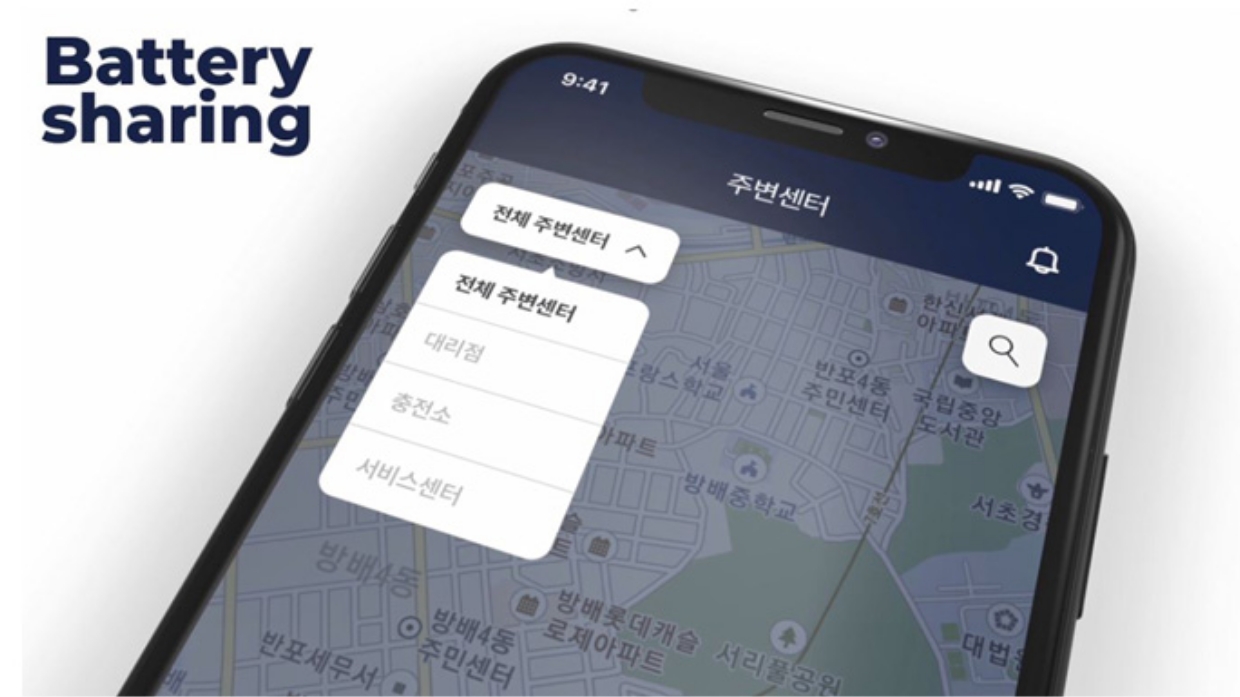
Along with the launch of MobilGo, Hyundai Kefico also introduced MOLDA, an electric two-wheeled vehicle total solution that includes a mobility data service and a battery exchange system. Molda is an IoT-linked mobility data platform that provides vehicle maintenance and battery sharing services using the communication module owned by Hyundai Kefico. It was created to provide a safer and smarter electric two-wheeled vehicle life to users and to support the efficiency of partner companies. Users of electric two-wheeled vehicles that house Hyundai Kefico's electric two-wheeled vehicle drive system, MobilGo, can conveniently access driving-related information such as the location of nearby battery swap stations through their smart devices. In addition, by analyzing users' various mobility lives through accumulated mobility big data, better mobility services are provided to users, and valuable data are provided to data consumers - such as partners, governments, and local governments.
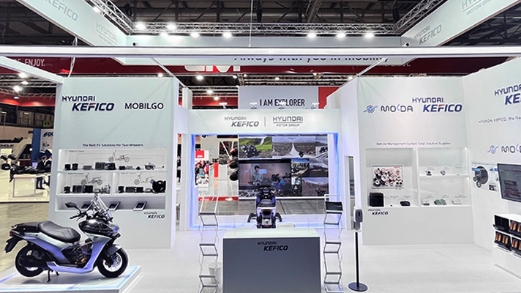
Hyundai Kefico will jump into not only Korea but also overseas markets where two-wheelers are common, with the quality of Mobilgo and Molda. The automaker has a plan to lay the groundwork for expanding the eco-friendly micro-mobility solution business by targeting the main two-wheeler market through targeting the Indonesian market, participating in the Milan motorcycle exhibition, and participating in the Malaysian business. First, in Indonesia, the company will sign a business agreement with the Indonesian Motor Indonesia (IMI) and local manufacturers to actively support the establishment of a local electric two-wheeled vehicle ecosystem. In addition, it is developing a drive system, mobility data service, and battery swap service to launch electric two-wheeled vehicles with 7kW and 3kW systems this year. Last October, the company also attended an event called Future EV Ecosystem for Indonesia to announce the achievements of technical cooperation with local manufacturers. Prior to this, it received a Letter of Intent (LOI) from another automaker in the region to supply 200,000 15kW drive systems equivalent to 200-250cc internal combustion engines for 5 years.
The strategy for the European market starts in Italy. Hyundai Kefico participated for the first time in the world's largest motorcycle exhibition, Esposizione Internazionale Ciclo Motociclo e Accessori (EICMA), held in Milan, Italy in November last year. There, the company introduced MobilGo's 3kW, 5kW, and 7kW electric two-wheeler drive system lineup and Molda, a mobility data service. After participating in the exhibition, the company has plans to secure contact points with countries leading the two-wheeler industry, such as Europe and Japan, beyond the Southeast Asian market. The company will also collaborate with public institutions in Malaysia to foster an EV industry ecosystem. A memorandum of agreement was signed with a total of seven companies and institutions, including Nano Malaysia, a public institution under the Ministry of Science and Technology and Innovation, to establish a micro-e-mobility industry ecosystem. , from the second half of this year, a project for manufacturing the 1,000 units of micro EVs with exchangeable battery system will be promoted for two years, and Hyundai Kefico will supply the 3kW-vehicle MobilGo 3, the 7kW-vehicle MobilGo 7, and Molda. Daegu City will also join, which is promoting a pilot project together with Hyundai Kefico to build a Korean e-mobility ecosystem.
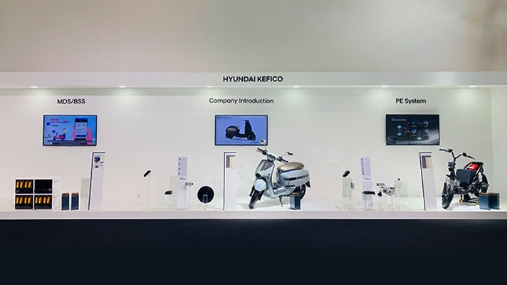
The Korea Transportation Safety Institute predicted that the size of the domestic micro-mobility market will expand to 200,000 to 300,000 units in 2022 alone. According to global consulting firm McKinsey, the COVID-19 pandemic has further accelerated the growth of the micro-mobility market and is expected to grow by 2030. Starting with the 6.8kW drive system (about 125cc), Hyundai Kefico plans to gradually expand the drive systems to 3kW (about 50~80cc) and 5kW (about 90~110cc). It plans to meet the diverse needs of the global micro-mobility market by establishing a lineup of various micro-mobility driving systems. Let's look forward to the success of Hyundai Kefico's electric two-wheeler drive system and other micro-mobility products, which will become a new alternative in the eco-friendly mobility market.